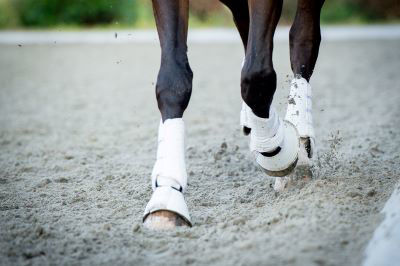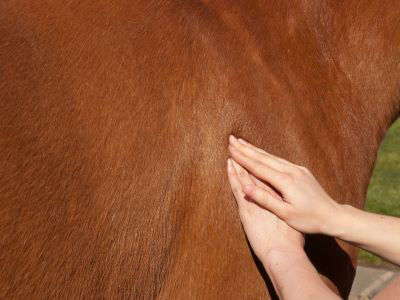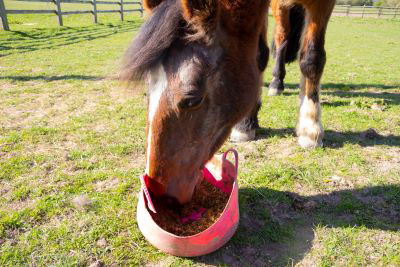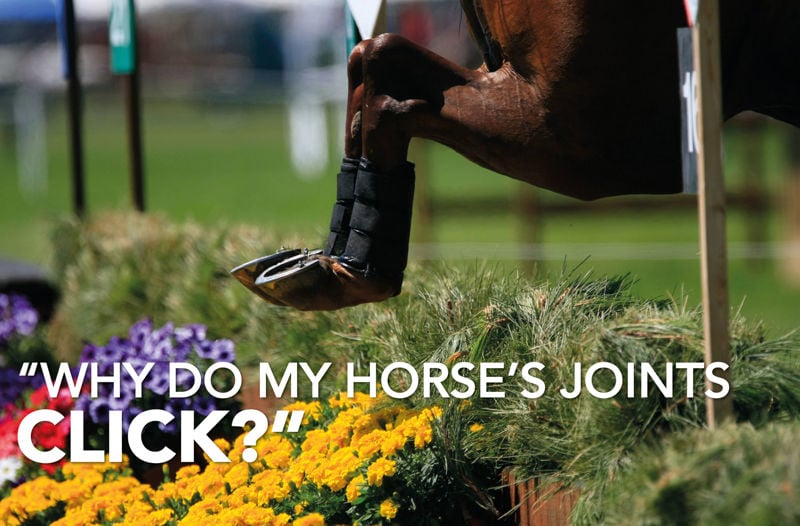Are clicking horse joints a cause for concern?
Clicking joints is common in both horses and humans, however, the cause of the sound is not well understood and is theorised to be caused by one or more origins. Older horses appear to be more predisposed to clicking joints and while these sounds can be heard more frequently from older joints, this issue can occur in horses of any age and causes concern for owners.
What causes clicking horse joints?
Clicking joints don’t necessarily indicate a severe issue, however, it is important to understand what the cause could be and how to manage your horse to ensure that there are no underlying joint issues that may require either treatment or support.
The most common cause of clicking joints is due to air bubbles (nitrogen gas bubbles) escaping from the joints or surrounding soft tissues. However, clicking horse joints may also be caused by aging, trauma or injury to the joint, or even arthritis.
In relation to their body size, horses have long legs and relatively small joints which need to support a lot of weight. As horses age their joints will experience natural wear and tear, however, some horses may be unfortunate to sustain an injury to a joint or some joint trauma in their lifetime which could accelerate the natural aging process and wear and tear. Common age-related issues such as arthritis also appear to be associated with clicking joints possibly due to the inflammation associated with this disease.
Age – Natural wear and tear to the joints can lead to clicking, popping or grinding sounds
Trauma / Injury – Injuries sustained to the joints can have a long-lasting effect on joint health and even once the healing process is complete, some horses may experience ‘noisy’ joints.
Arthritis – A common cause of clicking horse joints due to inflammation within the joint. Arthritis can cause pain and discomfort and changes within the joint that are associated with arthritis can result in clicking sounds when the horse moves.

Horses have long legs and relatively small joints which need to support a lot of weight.
Recognising clicking horse joints.
Not all clicking joints have a sinister cause, however, it is always best to get them checked out by your vet especially if they are associated with swelling, changes in gait, or lameness. If you are concerned about joint noises when working your horse, get someone to watch you riding to rule out forging as a cause of the clicking.
Forging is when the horse’s hooves come into contact with each other and this noise is usually more rhythmic than joint clicking which might only occur at a certain point of exercise, e.g., whilst the horse is warming up.
Treating clicking horse joints.
If you hear your horse’s joints clicking and this is a new occurrence, consulting your vet will help to rule out any underlying issues that might be causing your horse discomfort.
If joint injury or degradation is found to be the cause, your vet will advise on the most appropriate course of treatment and may prescribe medications such as anti-inflammatories to help deal with the root cause of the clicking. Your vet may also suggest alternative therapies such as physiotherapy or massage which could help to improve joint mobility and relieve tension.

Physiotherapy or massage could help to improve joint mobility and relieve tension.
Prevention of horse joint problems.
Maintaining joint health will reduce the likelihood of clicking joints from occurring. Exercise regimes that are suitable to your horse’s ability, age and, stage of training will help to reduce injury and maintain mobility. Feeding a balanced diet will also support your horses comfort and health.

Nutrition plays an important role in health and well-being.
Summary:
Clicking joints in horses are common and can be caused by factors such as air bubbles, natural aging, trauma, or arthritis. While clicking does not always signal a serious issue, it is important to monitor your horse for additional signs of discomfort, such as swelling, lameness, or changes in gait. Consulting a vet is recommended if the clicking is new or accompanied by other symptoms. Preventative care, including appropriate exercise and a balanced diet, can support joint health and reduce the risk of joint problems.
For any advice or questions you may have, please don't hesitate to reach out to our expert nutrition team. You can call 0800 585525 Monday-Friday 8:30am-5:00pm. Email [email protected], or send us a DM on social media.


